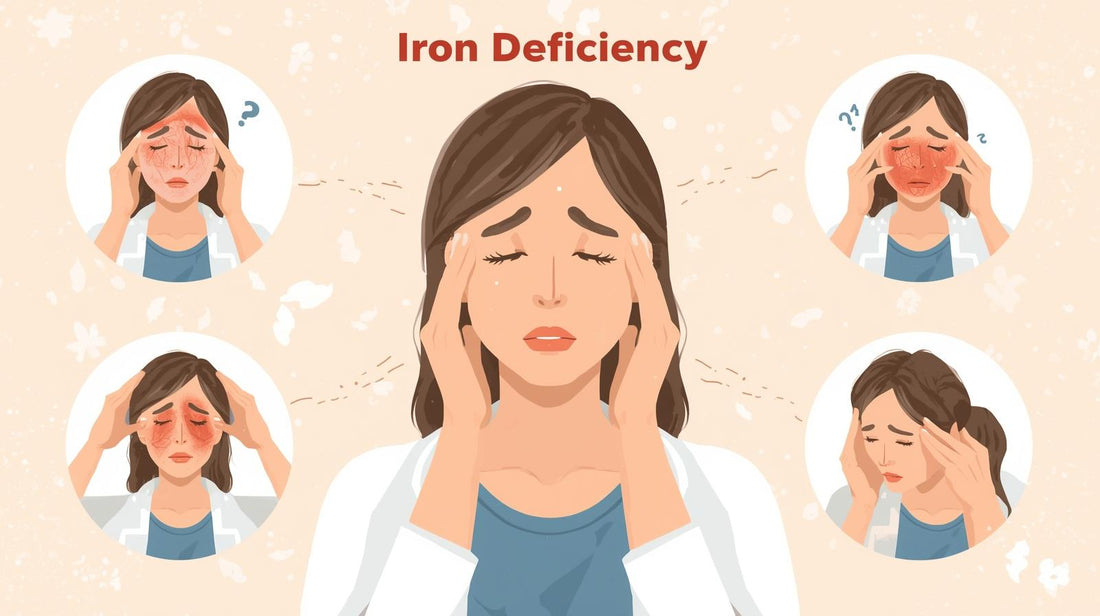
Understanding Iron Deficiency in Women
Share
Understanding Iron Deficiency in Women: Causes, Symptoms, and Solutions
Iron deficiency is one of the most common nutritional deficiencies worldwide, and women are particularly at risk. Whether you’re a busy professional, a student, a mother, or all of the above, understanding iron deficiency is crucial for maintaining your health and well-being.
Why Are Women More Prone to Iron Deficiency?
Women are more susceptible to iron deficiency for several reasons:
- Menstruation: Monthly blood loss can deplete iron stores, especially if periods are heavy.
- Pregnancy: During pregnancy, a woman’s body needs more iron to support the growing baby and placenta.
- Dietary Choices: Vegetarian or vegan diets may lack easily absorbed forms of iron.
- Increased Demands: Athletes or women with physically demanding lifestyles may require more iron.
Common Symptoms to Watch For
Iron deficiency can sneak up on you. Here are some signs to look out for:
- Persistent fatigue or weakness
- Pale skin or dark circles under the eyes
- Shortness of breath during routine activities
- Dizziness or headaches
- Brittle nails or hair loss
- Restless legs, especially at night
- Difficulty concentrating
If you notice these symptoms, it’s important to consult a healthcare professional for proper testing and diagnosis.
How to Boost Iron Levels
The good news is that iron deficiency is treatable. Here are some practical steps:
- Eat Iron-Rich Foods: Include lean meats, poultry, fish, beans, lentils, tofu, spinach, and fortified cereals in your diet.
- Pair with Vitamin C: Vitamin C helps your body absorb iron. Add citrus fruits, tomatoes, or bell peppers to your meals.
- Cook with Cast Iron: Cooking in cast iron pans can increase the iron content of your food.
- Limit Inhibitors: Coffee, tea, and calcium-rich foods can reduce iron absorption. Try to consume them separately from iron-rich meals.
- Consider Supplements: If your doctor recommends it, iron supplements can help restore your levels. Always follow medical advice, as too much iron can be harmful.
Empowering Women’s Health
Iron deficiency doesn’t have to slow you down. By understanding the risks, recognizing the symptoms, and making informed choices, you can protect your health and keep living life to the fullest. If you suspect you might be iron deficient, don’t hesitate to reach out to a healthcare provider for guidance.
